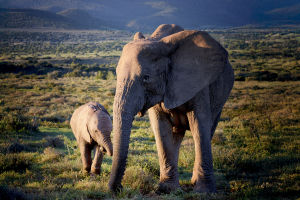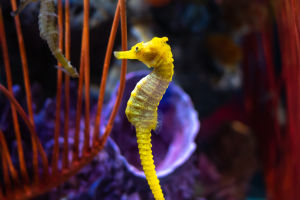Imagine being so convincing in faking your own death that it confuses a predator and saves your life. That's exactly what the Australian possum does. This marsupial has evolved an astonishing defensive strategy: it plays dead.
Known scientifically as thanatosis, this dramatic behavior is more than just a theatrical act—it's a sophisticated survival tactic that has helped possums avoid becoming dinner in the harsh wilderness of Australia.
So, how exactly do possums master this "death trick," and what evolutionary path led them to it? Let's explore this intriguing behavior that continues to baffle both predators and biologists.
What Is Thanatosis?
Thanatosis, or tonic immobility, is a defense mechanism seen in several species, including insects, reptiles, birds, and mammals. It involves becoming completely still—often limp—and unresponsive, mimicking the appearance of death. In the case of the possum, it may collapse on its side, go limp, stop blinking, slow its breathing, and even release a foul-smelling fluid from its scent glands to simulate the scent of decay.
This act is not under conscious control. It's an involuntary response triggered by extreme fear or threat, much like how humans might freeze during a sudden scare. And for the possum, it works remarkably well.
Why Does It Work?
In the natural world, predators often prefer live prey. Many carnivores are wired to detect movement and react to active animals. A creature that appears lifeless may be ignored, as it could be diseased, already dead, or simply no longer a threat. This hesitation gives the possum a critical window to survive.
Studies suggest that predators such as canines and birds of prey may lose interest once the possum stops moving. When the danger passes, the possum eventually "comes back to life" and escapes. It's a high-risk, high-reward tactic—but for an animal without speed or strength, it's one of the most effective options available.
The Possum's Death Act: A Step-by-Step Breakdown
A typical thanatosis episode in a possum includes several distinct steps:
1. Collapse: The possum suddenly drops to the ground and appears unconscious.
2. Limp Body: All muscles go slack, and the animal lies motionless.
3. Glass Eyes: Its eyes remain open and vacant, adding to the illusion.
4. Slow Breathing: Respiration becomes shallow and irregular, mimicking a lifeless state.
5. Odor Release: A greenish liquid may be secreted from the scent glands, giving off a smell similar to rotting meat.
This combination of visual and olfactory cues tricks many predators into thinking the possum is no longer a viable meal.
Evolutionary Roots of Playing Dead
So how did this behavior evolve? Thanatosis is not unique to possums—it has been observed in other marsupials, certain beetles, and even snakes. In possums, it likely developed over generations as those individuals who froze during a predator encounter had a higher chance of surviving and reproducing.
Over time, the behavior became more refined. Natural selection favored possums that could convincingly mimic death through physical stillness and scent production. The more realistic the act, the more likely they were to fool predators and pass on their genes. It's a classic example of evolutionary adaptation through survival pressure.
Is It Really a Possum or an Opossum?
While often confused, Australian possums and American opossums are two different animals. The American opossum is actually the species most famous for playing dead. However, some Australian possums—especially the common brushtail possum—have also shown forms of tonic immobility under extreme stress. While their death act may not be as dramatic as that of their American cousin, it's effective enough to discourage certain predators.
Not Just Acting—It's a Physiological Response
The act of playing dead isn't merely behavioral—it's deeply tied to the possum's nervous system. When overwhelmed, the autonomic nervous system triggers a state similar to paralysis. The heart rate slows, muscle control fades, and even pain sensitivity drops. This response is involuntary, similar to how some prey animals may freeze or go into shock when caught.
Interestingly, this same "freeze response" exists to some extent in humans as well. It's part of our ancient survival.
Predator-Prey Psychology
Possums exploit the psychology of their enemies. Many predators, especially wild dogs or foxes, prefer not to eat animals that might be diseased or already dead. A motionless body with a foul smell might indicate issues. Even scavengers often choose fresher prey. This pause or hesitation gives the possum a sliver of hope—a moment to escape if the predator walks away.
It's not foolproof, of course.
Some predators are less picky or may be familiar with the trick. But for the possum, it often works well enough to make it a common survival strategy.
What Happens After the Act?
Once the threat is gone, the possum doesn't instantly spring up. It may remain still for several minutes, slowly regaining muscle control and awareness. After recovering, it cautiously escapes into the nearest shelter—bushes, trees, or burrows. Scientists believe this slow recovery is due to the body gradually reversing its automatic shutdown mode, which can take time.
What Can We Learn From Possums?
The possum's fake-death behavior offers insights into the complex ways animals evolve to survive. It also teaches us that we can use a smart way to survival. Sometimes, the smartest thing to do is… nothing at all. In fact, researchers studying fear responses in humans and animals are learning more about how our own bodies react to danger from watching behaviors like thanatosis in species like the possum.
Conclusion: Drama That Saves Lives
So, the next time someone accuses you of being too dramatic, remember the possum. Its convincing act of death isn't just for show—it's a masterclass in survival strategy. With intelligence, this clever marsupial uses psychological manipulation and biology to outwit its predators.
Have you ever seen an animal play dead? Or used a clever trick to get out of a tricky situation? Share your story—and let's celebrate nature's most surprising survivalists.


